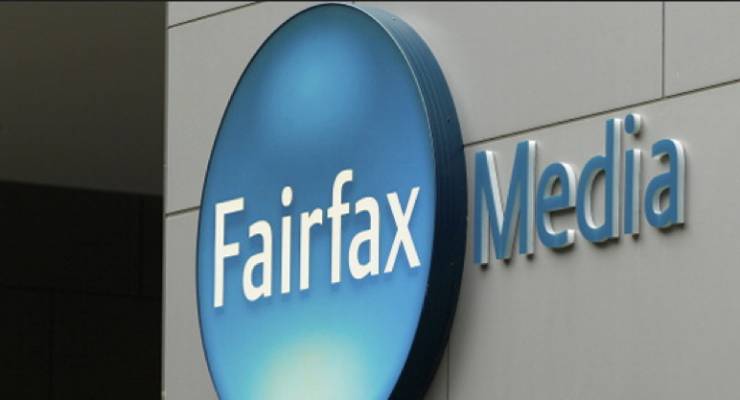
Fairfax Media is reported to be under siege from US buyout group, TPG Capital. Fairfax Media reports that TPG is expected to sit on a 4.9% stake in Fairfax after soaking up most of the 36 million shares that changed hands on Monday and Tuesday. Other punters will join the circus this morning and up will go Fairfax shares.
No foreign buyer can own more than 5% of an Australian media company without approval from the Foreign Investment Review Board (FIRB). Investors are not required to publicly disclose shareholdings of less than 5%. The Australian Financial Review revealed earlier this week that TPG is trying to drum up interest from local investors for a bid for Fairfax. The buying has driven Fairfax shares up 15 cents, or 12% to $1.07 yesterday. Fairfax shares haven’t been this high since April, 2011, well before its business model was destroyed by the rapid rise of Facebook, plus Google and the collapse in print ads. Billions of dollars have been written down in that time, thousands of employees have been sacked, including hundreds of journalists and the management and board changed several times.
The company’s share register has all sorts of oddballs in it — from big time super funds, to rich lister speculators such as Alex Waislitz, and his Thorney Investments (he is part of the extended Pratt family of Melbourne based rich listers).
Back in 2006, Kerry Stokes was confirmed as having a 3% stake in Fairfax. There have been no reports of that stake being sold and it is claimed Stokes’ Seven West Media remains a holder with a less than the disclosable 5% stake. Any move by Stokes would need the ownership limits abolished by the Federal Government’s media laws which remain stuck in limbo in the Senate. Stokes and Seven have not strongly supported these changes. Perhaps this move by TPG might see Stokes change his mind.
Most commentary says TPG wants control of Fairfax’s Domain property website business, which is the one asset Fairfax management have done more to protect and nurture in the past three years than the newspapers and even the Stan streaming video joint venture with Nine Entertainment Co. Fairfax took write-downs and other losses of more than $900 million in 2015-16 to separate Domain from its print operations and turn it into a stand-alone division. That, though, has coincided with a surge in property prices, increased fears about a crunch and a drop in listings, especially in the key Sydney and Melbourne markets (where News Corp’s REA Group is the major player).
TPG doesn’t have a stellar track record in passing on companies to shareholders that can depend on a value-driven deal being done. It is for TPG, but not the incoming shareholders. Myer is the best example. It listed Myer back in 2009 at $4.10 a share in one of the great flops of recent times. TPG took its cash from the bid and spirited out of Australia within hours of the cash coming into its accounts and left behind a reported $739 million tax bill, which was overturned by the Federal Court in 2011.
In 2014, TPG tried without success to cheapskate its way into control of Treasury Wine Estates. The board and management of Treasury rejected the approaches, angering some hedge fund and other short-term investors. Treasury shares have since more than doubled the sub-$5.20, TPG-suggested price to close at $12.16 yesterday. Now it is trying to bluff its way into Fairfax Media.








Crikey is committed to hosting lively discussions. Help us keep the conversation useful, interesting and welcoming. We aim to publish comments quickly in the interest of promoting robust conversation, but we’re a small team and we deploy filters to protect against legal risk. Occasionally your comment may be held up while we review, but we’re working as fast as we can to keep the conversation rolling.
The Crikey comment section is members-only content. Please subscribe to leave a comment.
The Crikey comment section is members-only content. Please login to leave a comment.